Only Yesterday

Cast & Crew
John M. Stahl
Margaret Sullavan
John Boles
Edna Mae Oliver
Billie Burke
Benita Hume
Film Details
Technical Specs

Synopsis
When the stockmarket crashes on October 29th, 1929, stockbroker Jim Emerson, broke and caught in an unhappy marriage, is about to shoot himself when he finds a letter on his desk from a woman from his past. In 1917, after carrying a torch for Lieutenant Jim Emerson for two years, nineteen-year-old Mary Lane dances with him at an officers' ball in Virginia and they make love in the moonlight. The following week, Jim goes off to war in France with no word to Mary. Pregnant, Mary goes to New York to stay with her broadminded aunt, Julia Warren, who runs a beauty shop. Julia welcomes Mary with open arms, assuring her that in the modern world, pregnancy is just another biological event. Mary's son Jim, Jr. is born on the day the Armistice is signed and she is eager to be reunited with Jim. Later, when the troops arrive in New York, Mary spots Jim in the ticker tape parade and runs to him, but he does not remember her, and instead embraces his society girlfriend Phyllis. Mary, heartbroken, is obsessed with Jim and watches him from afar. Time passes and Prohibition is set for the following January. On the day Mary decides to tell Jim the truth about their son, his honeymoon trip with Phyllis is announced in the paper. Ten years later, Julia is married to her ardent sweetheart Bob and Mary runs a successful beauty shop of her own. On New Year's Eve, Jim receives his annual secret New Year's message from "one who does not forget." That night, Julia and Bob, and Mary and her suitor, Dave Reynolds, go to a party at the St. Regis club. Mary promises to give Dave an answer to his repeated proposals at midnight, and then call Jimmy at home with the answer. Also at the St. Regis, however, is Jim, without his wife. When he and Mary eye each other across the room, he suggests they leave the party and takes her to his "bachelor" apartment. Jim still does not remember Mary, but she calls him by his name, refusing to divulge her identity. The two make love, and he swears he could never forget a woman like her. Six hours later, Jim asks to see her again, but Mary insists they part forever and leaves without telling him her name. At home, Mary tells Jimmy she is not going to marry Dave. Some years later, Mary, who has developed a chronic heart condition, lies on her deathbed composing the story of her life in a letter to Jim; the date is October 29th. Julia promises to mail the letter after Mary is dead, and Jimmy arrives home from his military academy to say goodbye to his mother. Mary dies, and Jim later reads the letter, which asks him to visit his son. Jim throws his suicide note away and says good-bye to Phyllis, who was going to leave him for another man. When Jim arrives at Mary's apartment, Jimmy tells him his mother is dead. Jim then tells Jimmy that he is his father.

Director

John M. Stahl
Cast

Margaret Sullavan

John Boles

Edna Mae Oliver

Billie Burke

Benita Hume
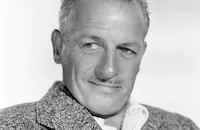
Reginald Denny

George Meeker
Jimmie Butler

Noel Francis

Bramwell Fletcher
June Clyde
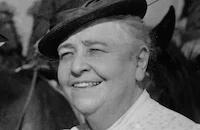
Jane Darwell
Oscar Apfel

Robert Mcwade

Onslow Stevens

Huntley Gordon
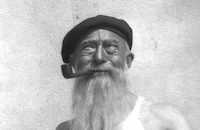
Edmund Breese
Jay Whidden And His Orchestra
Tom Conlon
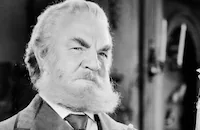
Berton Churchill
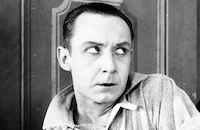
Franklin Pangborn

Walter Catlett
Barry Norton
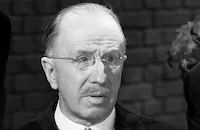
Arthur Hoyt

Natalie Moorhead
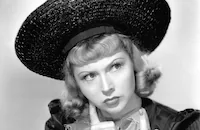
Joyce Compton
Betty Blythe
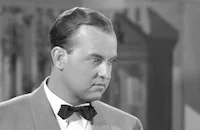
Grady Sutton
Ruth Clifford
Dorothy Grainger
Geneva Mitchell
Dorothy Christy
Marie Prevost
Warren Stokes
Herbert Corthell
Richard Tucker
Crauford Kent
Vivien Oakland
Bert Roach
Julia Faye
Robert Ellis
Cissy Fitzgerald
Leo White
Hugh Enfield
Mabel Marden
Lucille Powers
Edgar Norton
Gay Seabrook
Caryl Lincoln
Sidney Bracy
Jean Darling
Julie Carter
Frank Beal
Lita Chevret
Mary Doran
Dick Winslow
Matt Mchugh
Sammy Cohen
Norma Drew
James Donlan
Otto Hoffman
Harvey Clark
Ben Bard
Creighton Hale

Natalie Kingston

King Baggot

William Davidson
Lloyd Whitlock
Virginia Howell
Robert Bolder
Lynn Cowan
Maidel Turner

George Irving

Eddie Kane
George Hackathorne
Eleanor Jackson
Mildred Washington

Louise Beavers

James Flavin
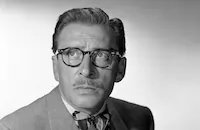
Leon Waycoff
Ida Darling
Marion "peanuts" Byron
Sheila Manners
Jeanne Hart
Herta Lind
Florence Lake
Jack Richardson
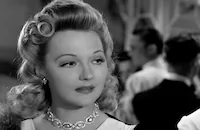
Astrid Allwyn
Jeanne Sorel
Ferdinand Munier
Bruce Warren
Hans Furberg
Churchill Ross
"deacon" Mcdaniels
Marion Clayton
Charles K. French
Lyman Williams
Tom O'brien
Crew
Constantine Bakaleinikoff
Scott Beal
Milton Carruth
Walter Donaldson
Merritt Gerstad
Charles D. Hall
Paul Hill
Ross Hoffman
William Hurlbut
Allyn Jones
Gilbert Kurland
Carl Laemmle
Carl Laemmle
Carl Laemmle Jr.
Joseph Lapis
Mickey Marigold
Warren Munroe
George O'neill
Harold Palmer
Arthur Richman
Jack Rixey
Ernest M. Smith
John M. Stahl
Barney Summers

Film Details
Technical Specs

Articles
Only Yesterday
At a crossroads in her life, Taeko is under pressure to marry but has not found a suitable mate. Visiting her sister and brother-in-law in rural Yamagata, she helps cultivate safflowers to be used in lipstick coloring. There she also meets her brother-in-law's cousin, Toshio (Toshiro Yanagiba), an organic farmer passionate about growing things, who enchants Taeko with the purity of his vision.
Exquisitely beautiful and perceptive, this nostalgic remembrance of times past was based on a manga comic geared toward adult women by Yuko Tone and Kei Okamoto. Only Yesterday proves the suitability of the form for handling complex and adult content and is also highly cinematic. While other Japanese filmmakers have moved toward fantasy and science fiction, Takahata has embraced the tender realism of Jean Renoir and carved a progressive new path for animation. Proving the public embrace of this innovative, more realistic form, the film was a box office success, especially among josei or teenage and adult female audience members.
Tone and Okamoto's original manga focused on short stories centered on the daily life of 11-year-old Taeko. But it was director Takahata who created the film's concept of the adult narrator looking back on her girlhood to organize the short stories into a cohesive plot.
Only Yesterday director Isao Takahata graduated from Tokyo University and in 1959 joined the animation studio Toei Doga where he made what is considered one of the greatest animated Japanese films Horus: The Prince of the Sun (1968).
Takahata later became a colleague of famed animator Hayao Miyazaki (Princess Mononoke, 1997), and worked with Miyazaki on a number of features including the television series Lupin III (1971) and Anne of Green Gables (1979). The pair continued to work on many productions as a director/animator team at the animation Studio Ghibli. The directors/animators eventually secured distribution rights with Disney, which agreed to release their films in the United States in 1996.
Producer: Hayao Miyazaki
Director: Isao Takahata
Screenplay: Isao Takahata
Art Direction: Yoshiyuki Momose
Music: Katsu Hoshi
Cast: Miki Imai (Taeko), Toshiro Yanagiba (Toshio), Youko Honna (young Taeko), Mayumi Iizuka (Tsuneko Tani), Masahiro Ito (Father), Chie Kitagawa (Taeko's Grandmother).
C-118m. Letterboxed.
by Felicia Feaster

Only Yesterday
Quotes
Trivia
Notes
According to a news item in Hollywood Reporter on May 24, 1933, Universal studios, which was shut down because of financial troubles, reopened with this film and was forced to enact wage cuts for its personnel. The World War I footage in this film was taken from Lewis Milestone's 1930 film All Quiet on the Western Front (see AFI Catalog of Feature Films, 1921-30; F2.0094). As reported in Hollywood Reporter on May 19, 1933, Isabel Jewell and Minna Gombel were considered for feature roles in this film. According to Daily Variety, Baby McLean, who was ten days old when he worked (for a reported one hour and fifteen minutes) on this film, was the youngest actor ever used by Universal to that time.
According to MPPDA files, in Jun, 1932 Universal approached the Hays Office about adapting the book Only Yesterday for the screen and received a favorable response. In Jan, 1933, a rough draft script was submitted to the Hays Office, and Dr. James Wingate, Director of the Studio Relations Office, AMPP, wrote to Carl Laemmle on January 3, 1933 informing him of Office objections. They included the uses of profanity such as "God almighty," "My God" and "Mrs. Richbitch," as well as two speeches made by masculine looking women which ended with: "And my dear, when I say nothing, I mean nothing-if you follow me" and the reply, "I follow you, my dear." In Wingate's words, the Office was of the opinion that the speeches were "rubbing the implication of Lesbianism in to the point where it would be contrary to the Code....We feel that your point is amply gotten over by the preceding two speeches." It is unclear what message the speeches were intended to relate. Wingate also stated that, although "the two main sex situations have been handled with great delicacy and discretion," for "Mary" and "Jim's" New Year's Eve rendezvous, the Hays Office advised that "Jim" not be in his robe, but completely dressed following the fade out because some more stringent censor boards might object to "even a slight change of costume as being a visual indication that an affair had taken place." Laemmle agreed to eliminate all the Code objections from the script and take advantage of Wingate's censorship advice if the sequence containing the robe could "still be clearly gotten over." Production did not begin until the last week of May 1933, and on 24 May, Wingate wrote to Universal Assistant General Manager Harry Zehner stating that because of the increased tightening of censorship since Jan, the Office suggested the studio tone down "Julia's" reference to "pregnancy" to a mention of "biological events." The final line read, "It's just another of those biological events."
In a memo from Wingate to Hays dated May 26, 1933, Wingate reports that Universal intended to cast Irene Dunne and John Boles because of the success of Back Street, but Margaret Sullavan was cast instead of Dunne, and made her screen debut. A review in the Hollywood Reporter calls Sullavan "an astonishingly clever actress" who takes the film and "wraps it up and carts it away in her little side pocket and is now begging for new and more important roles to conquer." When the Hays Office finally reviewed the finished film, it objected to both "Mary" and "Jim" emerging from the bedroom on New Year's Eve, claiming that the sequence was not in the submitted script. The emergence of both of the lovers from the bedroom, May have been Laemmle's compensation for the Hays Office's objection to "Jim" emerging wearing a robe. The indication of lesbianism was still objectionable, as was a scene in which a dog wets his owner's dress, and the scene in which "Mary" and "Jim" emerge from the garden having made love and he says, "I guess I tied your sash wrong." By October 28, 1933, the Hays Office finally approved the film on condition that the lesbian inference be cut, as well as an off-stage click of a door in the New Year's Eve scene.
On September 24, 1936, Vincent G. Hart, assistant to Hays Office director Joseph I. Breen, wrote to Breen that an exhibitor opening a revival house wanted to screen Only Yesterday. At the same time, Universal was considering re-issuing the film, but on 30 Sep, Breen wrote to Zehner that the Hays Office viewed four reels of the film and deemed it in violation of the Production Code and suggested Universal withdraw its application for re-issue approval. Breen writes, "The specific Code violation in this story is pointed up by the fact that the hero is shown as an immoral man, who engages, with the heroine, in an illicit sex relationship, out of which comes an illegitimate child. This situation is condoned by at least two of the characters, and it is not definitely shown to be wrong, but rather made a romantic thing, and there is a complete absence of anything suggestive of compensating moral values." Pencilled notes (adjacent to a copy of Breen's letter of 30 September in the MPPDA files), which state that the Hays Office reviewer stopped after reel four, delineate many of the same Code violations that the Hays Office warned Universal about in 1933. They include: Edna Mae Oliver's utterance of "My God," the sequence in which a dog wets his owner, which includes the dialogue, "Mercy. Somebody's spilled a cocktail," and the action of a woman holding the dog away from her, the "business of tying belt" (apparently a reference to "Jim" having tied "Mary's" sash in the garden scene), Sullavan's line "I'm not ashamed-I suppose I ought to be-but I'm not," and Burke's "speech of condonation" of "Mary's" pregnancy in which she states "It's just another of those biological events." Upon release in 1933, various territories had eliminated the cocktail line, the use of "God almighty" and the line "I should be ashamed...." Shanghai, China censors eliminated a reference to an Allied advance against the enemy in Argonne. The objectionable phrase (in italics) read, "Well, the Allies will tire them out first and then wipe them out when they're ready." By October 2, 1936, Breen had learned that the revival house to which Hart referred was in Washington and he wrote to Hays that "re-issue at this time might spell disaster." In May 1937, Universal again inquired about the possibility of re-issue and Breen wrote to Sid Singerman, Assistant to Sales Manager at Universal, on May 4, 1937 stating that the September 1936 decision against re-issue still held.
On September 11, 1945, in an inter-office memo, Breen recorded a meeting he had with producer Felix Jackson regarding a proposed re-make of Only Yestersay. Breen wrote that he informed Jackson that the 1933 picture was approved before the organization of the Production Code and was a "thoroughly unacceptable screenplay, viewed in the light of the Production Code" because it was the story of "illicit sex and adultery, without sufficient compensating moral values." Breen further advised that a remake of the film would not be allowed without "considerable revamping of both its basic structure and its details." The memo further states that Jackson wanted to set the picture in 1941, ending in 1951, and that Breen wanted to insert the so-called "compensating moral values" absent from the screenplay. Breen's suggestions included making the woman from a wealthy family in the South, whom she leaves to go to New York while keeping her pregnancy a secret. Instead of the woman's aunt welcoming her, Breen proposed she be forced to live in a cheap boardinghouse and only after the baby is born in a general hospital in New York, would the aunt (who lives in moderate circumstances instead of what Breen termed the "lap of luxury") take in the woman and the baby and give her a job in her specialty shop, where she would be "really made to earn her keep." The story would then continue as usual, except that the woman would not sleep with the man a second time and when united with his son, the man would be broke and given "a new lease on life by way of the love and companionship of the boy." At the end of the film, the father would refrain from taking the boy in his arms and would walk out of the picture without telling the boy he is his father. Jackson was reportedly not impressed with Breen's suggestions, and the film apparently was never made.
Stefan Zweig's novel was first filmed in German by Alfred Abel as Narkose (Narcosis) for G. P. Films. It opened in Berlin on September 9, 1929. Zweig's novel was remade in 1948 by Universal as Letter from an Unknown Woman, directed by Max Ophuls and starring Joan Fontaine and Louis Jordan.














